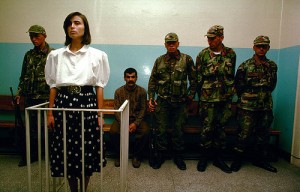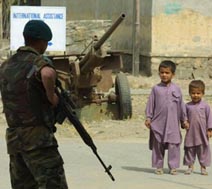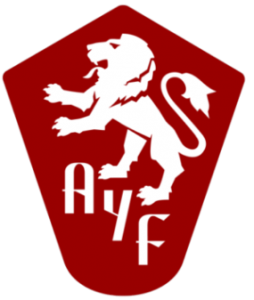The Kurdish Struggle Against Genocide
The Turkish constitution does not recognize Kurds in Turkey, and so often labels them as terrorists—using them as a convenient scapegoat for military uprisings and other political issues. In Turkey “terrorist” is synonymous with Kurd. Turkey frequently argues that the Kurdistan Workers’ Party, is a terrorist organization and thus all Kurdish organizations face the threat of being banned for their real or imagined ties to the PKK.
In 1999, the death toll of Kurds killed in Turkish military operations increased to over 40,000. According to the figures published by Turkey’s own Parliament, 6,000 Kurdish villages were systematically evacuated of all inhabitants and 3,000,000 Kurds have been displaced.
The systematic military campaign against them was nothing short of the elimination of a people, a culture and a homeland. The oppression of Kurdish people within Turkey can be defined as genocide in various ways; cultural, linguistic and physical all play a part in the cleansing of Kurdish ethnicity from Turkey itself, and are still embraced by the Turkish constitution.
To date, however, Turkey denies these genocidal campaigns. Below are some of the voices of Kurds themselves, as they struggle to bring the world’s attention to their plight and draw parallels between their suffering and that of the Armenians.
Ocalan Says Kurdish Struggle is Against Genocide
Kurdish leader Abdullah Ocalan, under detention in Italy in December of 1998, defended his cause as a struggle against genocide. The Kurdistan Workers’ Party (PKK), which he founded in 1978, has fought for nearly three decades for self-rule in southeast Turkey, where they make up the majority. “Despite the history of the Kurdish people which goes back more than 2,500 years–the Republic of Turkey continues to deny the existence of this people or its identity–language and culture,” Ocalan said.
In a 1998 letter directed to the President of Armenia, Ocalan welcomed the Belgian Senate’s passage of a resolution recognizing “the reality of the Armenian holocaust” and stated, “Let us recall Hitler’s response to a critic of the ‘final solution’ of the Jewish problem: ‘Who complained about the Armenians?’”
Kurdish Parliament in Exile Recognizes Genocide
 On the 82nd anniversary of the Armenian Genocide, in 1997, the Brussels-based Kurdish Parliament in Exile passed a resolution recognizing and marking the Armenian Genocide. The resolution, signed by the parliament’s chairman, Zubeyir Aydar, condemned the Genocide and acknowledged the Ottoman government and their Hamidiye collaborators–formed by some Kurdish tribes–for the crime against humanity.
On the 82nd anniversary of the Armenian Genocide, in 1997, the Brussels-based Kurdish Parliament in Exile passed a resolution recognizing and marking the Armenian Genocide. The resolution, signed by the parliament’s chairman, Zubeyir Aydar, condemned the Genocide and acknowledged the Ottoman government and their Hamidiye collaborators–formed by some Kurdish tribes–for the crime against humanity.
“The Turkish State regime–from history to our days–has worked against the peoples–as if a guilty party–and with her committed genocides has changed the demographics of Anatolia causing the demise of many cultures and civilizations,” the resolution said. “The same policies are being applied in Kurdistan today. I call upon the world public opinion to become aware of this Turkish State policies and vehemently oppose it.”
Turkish Policies Genocidal, Says DTP
Ahmet Turk, the leader of the pro-Kurdish Democratic Society Party (DTP) in Turkey was prosecuted in October of 2008 for denouncing the government’s policy regarding the Kurds as “cultural and societal genocide.” Speaking to supporters in the south-eastern city of Diyarbakir, Turk said the Kurds had suffered under “cultural and societal genocide” since the military coup of 1980.
The speech came after days of protests in south-eastern cities where hundreds of Kurds were arrested after clashes in various towns in the pre-dominantly Kurdish-populated south-east.
Saddam’s Destruction of the Kurds
Between 1987-1988, Iraq’s deposed dictator Saddam Hussein slaughtered some 182,000 Kurdish civilians in Northern Iraq, using artillery, air strikes, death camps and poison gas attacks. During his trial in late 2006, Hussein legitimized the massacres in Anfal “as a legitimate counter-insurgency operation against Kurdish separatists at a time when Iraq was at war with Iran,” much like the manner in which Turkey seeks to justify its Genocide of Armenians.
Panel Discusses Relations Between Turks, Kurds, and Armenians
On April 20, 2009 a panel comprised of Armenian, Turkish, and Kurdish scholars came together in Massachusetts to discuss the uneven relations between Turks, Kurds, and Armenians under Ottoman Rule. The panel dove deep into the nuances of the Armenian Genocide, presenting the gamut of issues connected to it, from the role of Kurdish chieftains in the execution of the crime, to the open possibilities for reconciliation between Kurds and Armenians based on a shared experience of oppression under Turkish rule. “Kurdish-Armenian dialogue carries a very promising potential for reconciliation that is very much open to the issues of truth-seeking and justice, which are often absent in Turkish-Armenian dialogue,” said one panelist, Dr. Bilgin Ayata from Johns Hopkins University.
Turkish Assault on the PKK
 Turkish warplanes have been bombing PKK installations in Northern Iraq since early 2008, when Turkey officially launched a ground incursion into northern Iraq, sending 10,000 troops across the border supported by air assets to neutralize PKK bases from which attacks against the Turkish military were being mounted. Since they first began as small-scale cross border incursions in late 2007, these attacks have led to the deaths of thousands of Kurds, civilian and PKK alike. The first modern incursion into Northern Iraq, however, was launched in 1983 and has continued sporadically since.
Turkish warplanes have been bombing PKK installations in Northern Iraq since early 2008, when Turkey officially launched a ground incursion into northern Iraq, sending 10,000 troops across the border supported by air assets to neutralize PKK bases from which attacks against the Turkish military were being mounted. Since they first began as small-scale cross border incursions in late 2007, these attacks have led to the deaths of thousands of Kurds, civilian and PKK alike. The first modern incursion into Northern Iraq, however, was launched in 1983 and has continued sporadically since.
Armenian Apology Causes Brawl in Turkish Parliament
On December 30, 2008, Turkey’s only pro-Kurdish political party, the Democratic Society Party (DTP) apologized to the Armenians and Assyrians for the 1915 Genocide. “Sensing the pain of the events in our hearts, we feel that we need to apologize,” it’s leader, Ahmet Turk said. “We are ashamed when we look at our Armenian or Assyrian brothers.”
That same day, a member of the DTP requested in parliament that the Turkish legislature apologize to Armenians for the “events of 1915,” which he described using the Kurdish word for Genocide. His remarks caused an uproar, with members from the Republican People’s Party and Justice and Development Party hurling personal insults at Kurdish deputy for “insulting the society in which you live.”
“We remember, We Share Your Grief”
On April 24, 2009, “Gunluk,” the Kurds’ only Kurdish-language newspaper in Turkey, featured a large headline above its logo that read: “We remember, we share your grief,” in Armenian with Armenian lettering.
Gunluk was the only paper in Turkey to commemorate the genocide victims—not with a few words, but by dedicating the entire issue to the genocide. On that same day, the Human Rights Association of Turkey organized a commemoration calling for the truth to be revealed that a genocide was committed here in this country in 1915. Although a number of Turkish media outlets were present, none bud Gunluk covered the event.


Leave a Reply
Want to join the discussion?Feel free to contribute!